5 Tec de Monterrey teams won gold and bronze medals at the International Genetically Engineered Machine competition (iGEM 2022).
Students from Mexico City, Chihuahua, State of Mexico, Guadalajara, and Monterrey campuses used synthetic biology to develop their projects and stand out during the international competition.
The students worked in multidisciplinary teams to create new biological systems, developing projects that aim to present solutions to real-world problems.
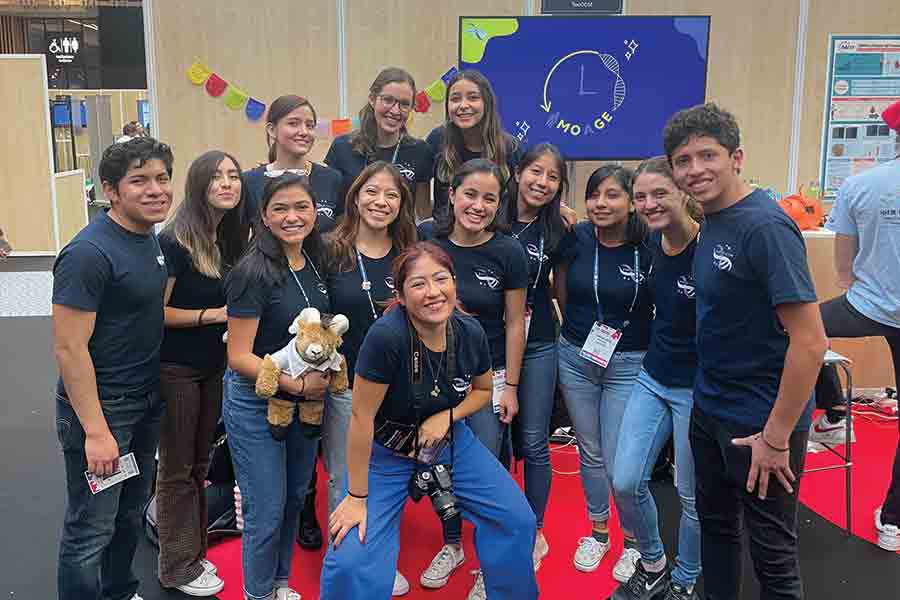
Healthy aging proposal earns them gold medal
The Mexico City campus team presented iMoAge, an inflammatory monitor for aging intended to be a geroscience tool that contributes to or promotes a culture of healthy aging.
“Our goal is to measure the relationship between 3 inflammatory markers and an anti-inflammatory marker, for which we’ve developed a POC biosensor,” explained José Mario González, professor and team mentor.
He said that the design involves 2 different aptamers (for diagnosis) for each biomarker in order to be able to detect each protein.
The biotechnology students won a gold medal in the Diagnostics category with this project.
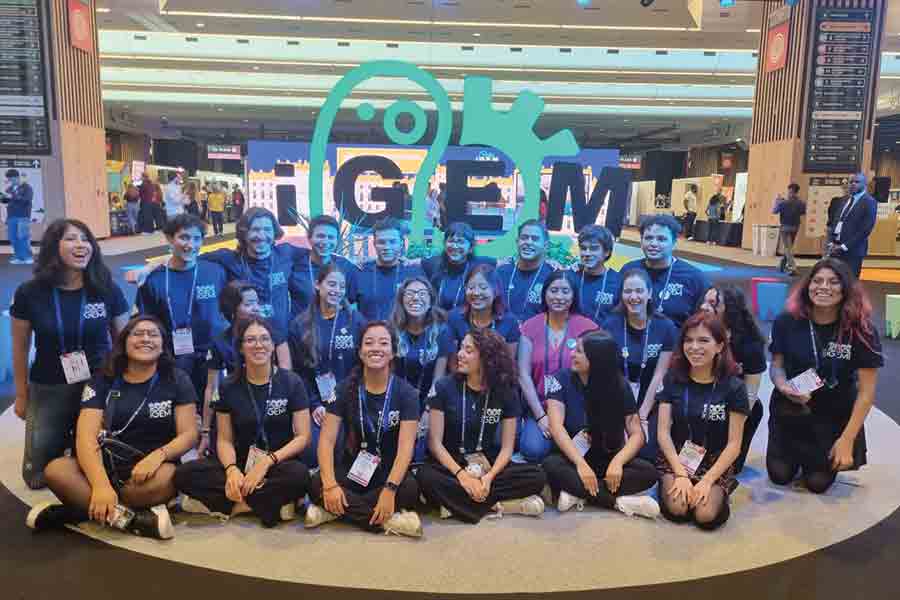
Combating chemicals in wastewater
The State of Mexico campus won a gold medal in the Environment category with Hydro Defense, a biosensor to detect Endocrine Disrupting Chemicals (EDCs) in irrigation water.
When consumed, EDCs can mimic hormones, altering bodily functions and affecting people’s health.
“We designed a biosensor to address problems related to the use of EDCs in irrigation water and inaccessible quantification methods for analyzing water samples,” said Ana Laura Torres, professor and team mentor.
The biosensor works by using Human Estrogen Receptor Alpha protein as an immobilized biological recognition component on gold nanoparticles that are used as amplifiers.
It also uses an aptasensor, a sensor based on a Quartz Crystal microbalance, which facilitates the measurement of small masses of EDCs.
“It’s important to note that this system is low-cost, easy to use, fast, and biosecure, mainly because our end users would be farmers,” the professor pointed out.
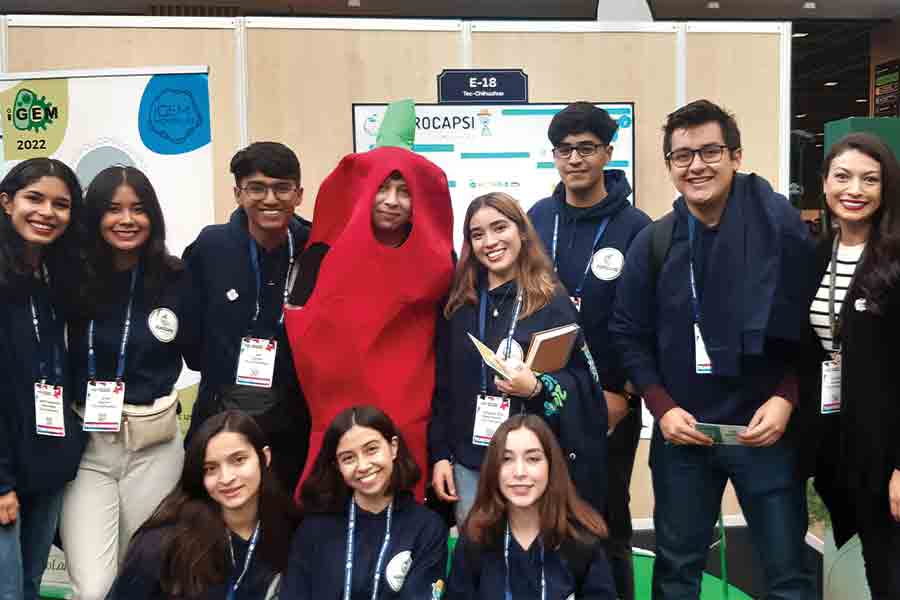
A biofungicide that protects chili pepper plants
After nine months of work, the Chihuahua campus team presented Agrocapsi, a biofungicide aimed at protecting chili pepper plants.
This project won them the gold medal in the Food and Nutrition category and a special nomination for inclusion.
In order to develop the biofungicide, the Chihuahuan students contacted producers from the state of Chihuahua to get a true picture of the problem and to be able to create a better solution.
The young students investigated the different reasons behind chilis wilting and found out that the fault lay with a phytopathogen known as phytophtora capsici. The team developed an environmentally friendly proposal.
“Seeing the result of nine months of work summed up in three days of competition with people just as passionate as you allows you to see how every sleepless night paid off,” said Alejandro Rojo, a Biotechnology student and team member.
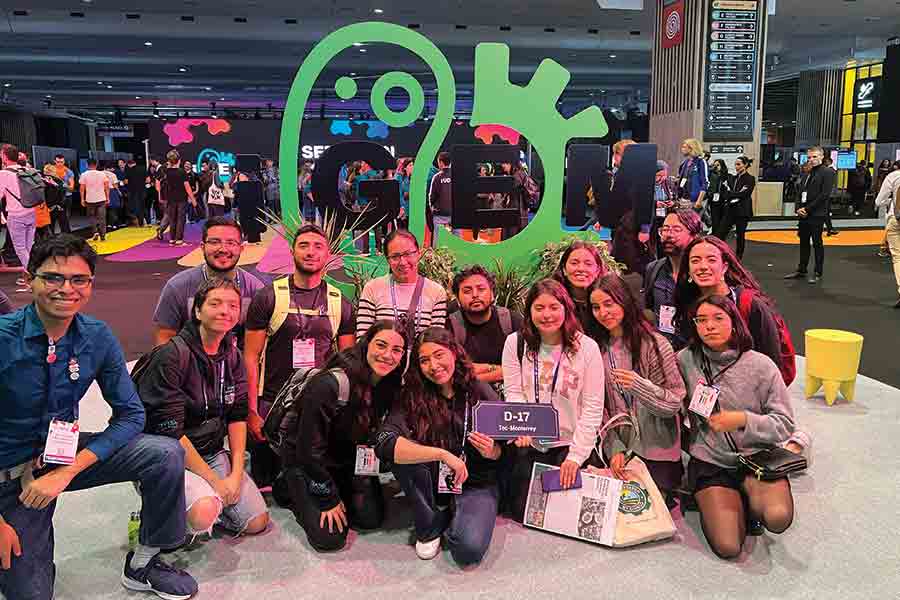
Antibiotic resistant bacteria
RNair, a mechanism that resensitizes bacteria to antibiotics, was the project presented by students from Monterrey campus.
Thanks to this proposal, the team won a gold medal in the Therapeutics category.
“It’s estimated that by 2050, antibiotic resistance will cause around 10 million deaths a year, becoming one of the 10 main threats to public health,” explains César Puente, professor and team mentor.
The solution presented is a gene silencing system delivered via M13 bacteriophages that provide bacterial silencing by means of liposome-phage complexes.
This silencing is based on computationally optimized sRNAs that combine the use of 2 different bioinformatic score protocols that are evaluated using Machine Learning algorithms.
“The experience of participating in iGEM is a journey full of challenges and many hours of work to carry out a project that we believe can make the world a better place,” said Emilio Fabián Ortiz, one of the project leaders.
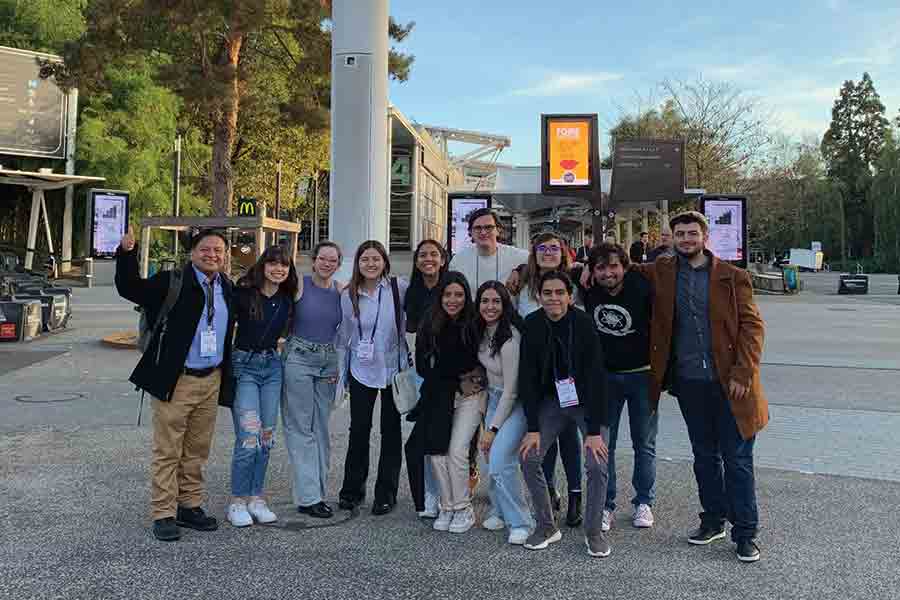
Easy and economical contaminant detection
The bronze medal went to the NeoTech-e student group from Guadalajara campus, who developed a fluorescent enzymatic system capable of detecting emerging contaminants.
They carried out the work in the Bioengineering Department’s Biotech Space labs.
“The molecular development aims to offer a simple, efficient, and economical way to detect toxic levels of erythromycin, rifampicin, and pentachlorophenol,” explained team mentor Jorge Donato García.
NeoTech-e students also carried out Human Practices activities such as scientific talks for the community and developing a comic book for children about environmental awareness.
“As a biotechnology student, participating in the iGEM competition made me grow academically and personally. After this, I can say that it’s the most enriching experience I’ve had in my career,” said Luz Virginia Raygoza, president of the student group.
“The iGEM experience is full of challenges and a lot of work to carry out a project that we believe can make the world a better place.” - Emilio Ortiz.
About iGEM
iGEM is the largest synthetic biology competition for university students and aims to inspire learning and innovation through education and competition.
It began as a competition for students from the Massachusetts Institute of Technology (MIT) in January 2003. 18 years later, the competition has grown to 350 teams from over 40 countries.
The teams receive a kit of more than a thousand standard parts called BioBricks. Using these and other parts, they develop their own design.
Students build, test, and characterize genetically engineered systems in living cells in an effort to address real-world issues.
The 2022 edition took place at the Porte de Versailles exhibition center in Paris, France.
READ MORE:





